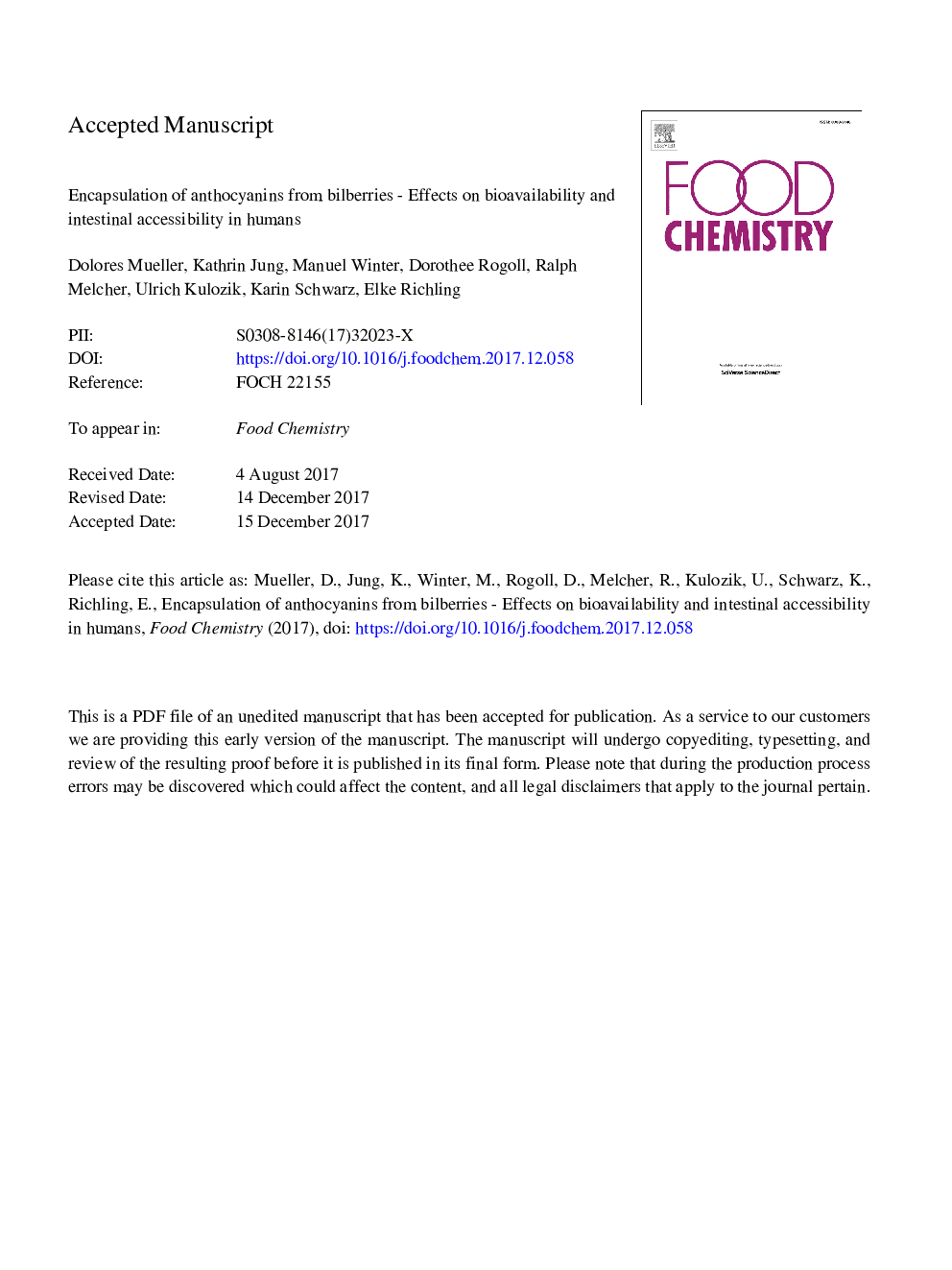| Article ID | Journal | Published Year | Pages | File Type |
|---|---|---|---|---|
| 7586023 | Food Chemistry | 2018 | 28 Pages |
Abstract
Anthocyanins are flavonoids that have been suggested to provide beneficial health effects. The biological activity of anthocyanins is influenced by their pharmacokinetic properties, but anthocyanins are associated with limited bioavailability in humans. In the presented study, we investigated how the encapsulation of bilberry extract (BE), a source of anthocyanins, with either whey protein or citrus pectin influences the bioavailability and intestinal accessibility of anthocyanins in humans. We performed an intervention study that analyzed anthocyanins and their degradation products in the urine, plasma, and ileal effluent of healthy volunteers and ileostomists (subjects without an intact colon). We were able to show, that whey protein encapsulation modulated short-term bioavailability and that citrus pectin encapsulation increased intestinal accessibility during passage through the small intestine and modulated the formation of the degradation product phloroglucinol aldehyde (PGAL) in human plasma.
Keywords
HBAPGalArabinoside4-Hydroxybenzaldehyde (PubChem CID: 126)4-Hydroxybenzoic acid (PubChem CID: 135)MGACPCMALGlcWPC4-HydroxybenzaldehydePCAAnthocyaninsinternal standard4-Hydroxybenzoic acidProtocatechuic acid (PubChem CID: 72)Syringic acid (PubChem CID: 10742)syringic acidVanillic acidVanillic acid (PubChem CID: 8468)protocatechuic acidGallic acid (PubChem CID: 370)ARADELdelphinidinCyanidinBioavailabilityMalvidinHuman interventionPETPetunidinPEOPeonidinEncapsulationGalGalactoseGallic acidGlucoseGlucGlucuronide
Related Topics
Physical Sciences and Engineering
Chemistry
Analytical Chemistry
Authors
Dolores Mueller, Kathrin Jung, Manuel Winter, Dorothee Rogoll, Ralph Melcher, Ulrich Kulozik, Karin Schwarz, Elke Richling,
